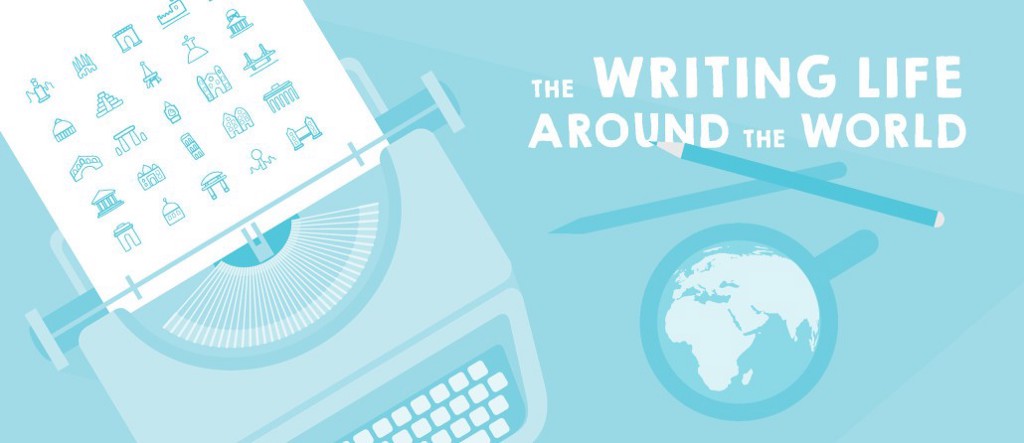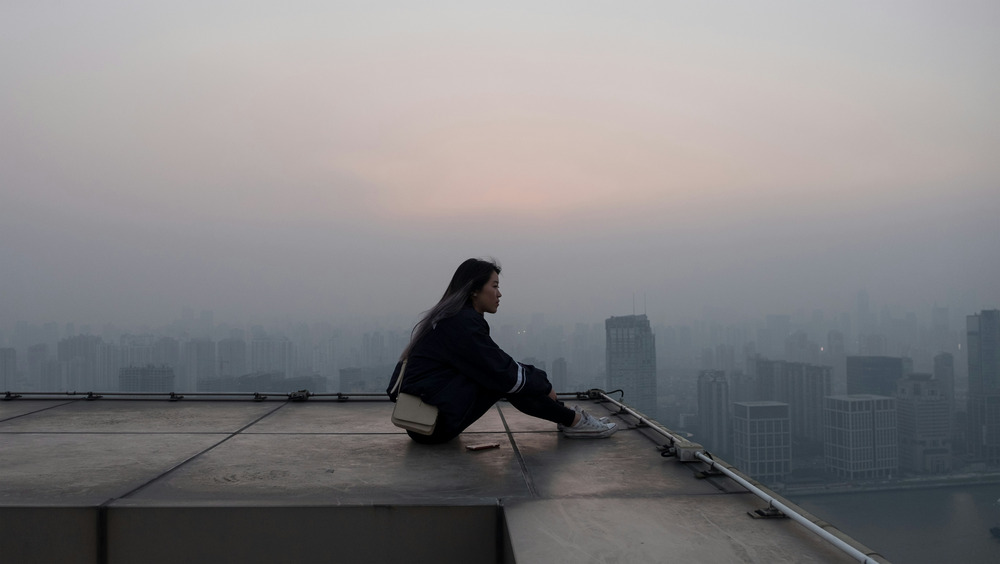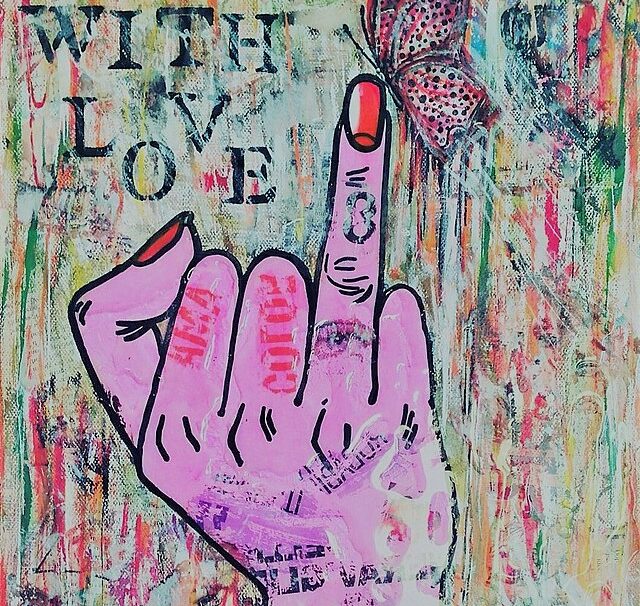writing life
Suppression, Solidarity & Language In the Ukraine
Natalka Sniadanko on literature as the last bastion and the writing life in her home country

Translated from the Ukrainian by Jennifer Croft
There’s a café in downtown Lviv near the Armenian church that takes its customers back to the 1980s: little tables on wobbly legs, cakes covered in bright buttercream frosting flowers, then-fashionable liqueurs lined up above the bar — not to mention the unusual way they have of brewing coffee. The woman at the bar taps out sugar and organic coffee into a special little long-handled pot to which she then adds water. Next she sets the pot atop a very anachronistic-looking contraption, a box in which tiny iron filings are heated up on a very low current. Paying absolute attention, she keeps the pot on the device until exactly the right moment, when she stirs its contents with a thin wooden stick. She meticulously monitors her clientele’s movements once the coffee’s served, delivering well-timed instructions to stir again or to pick up the little pot, or, finally to pour it into the little cup. The coffee’s foam must increase threefold before it can be considered ready.
It was here, in “the Armenian,” that the city’s bohemians would gather in the ’70s, ’80s, and part of the ’90s.
The particular flavor of this coffee is held dear by several generations of Lvivians. It was here, in “the Armenian,” that the city’s bohemians would gather in the ’70s, ’80s, and part of the ’90s. In those internetless days it was important to have a meeting point where you could regularly cross paths with key people — every day, if you wanted — and inform them of something, discuss something with them, or just sit and have coffee with them.
Just a little further down on the same street you’ll find Dziga, the first and still the most successful Lviv institution engaging in the business of culture. Every day Dziga hosts concerts, readings, exhibits, or just the regular get-togethers of book clubs and writing groups. It’s all so much more civilized now, deprived of its former wild Soviet charm, today only extant in the reminiscences of old-timers over coffee or a glass of wine.
Back then, too, at “the Armenian,” the little pot was delicately placed in iron filings, and the coffee was stirred with a little wooden stick and poured inside tiny white porcelain cups customers would take outside, setting them on the broad sills of the sturdy medieval buildings as they smoked and talked. Accustomed to this ritual, the waitresses would eventually come out to collect the empty cups and noiselessly ferry them back inside.
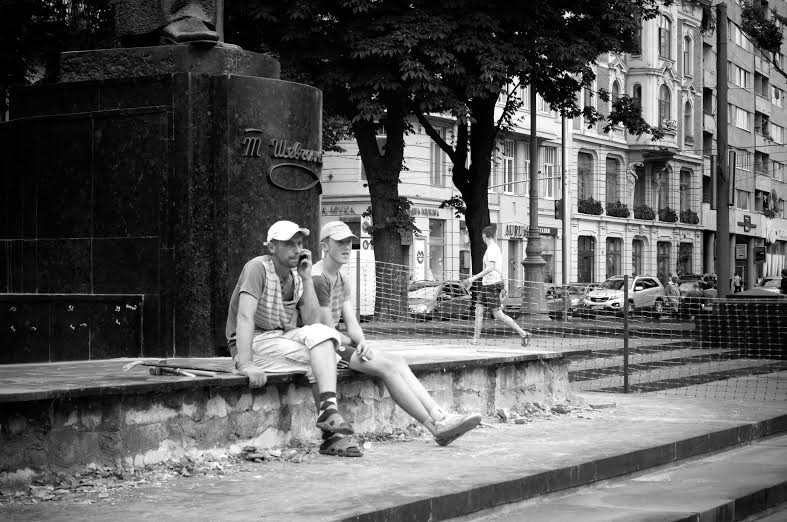
The women behind the bar were always very important people here. They’ve been written about in novels, turned into TV shows, and had gigabytes upon gigabytes dedicated to them online. Now “the Armenian” has long since lost its role as social framework, frequented today by pot-bellied sexagenarian granddads who come to drink coffee with cognac, as was the fashion in their youth, and by ladies of the same age who chat over coffee and pieces of highly calorific, and similarly nostalgic, cake — and by tourists and TV crews. The women at the bar don’t allow anyone to take their picture — they’re famous enough as it is among tourists and on Facebook and Twitter. Their contemplative process of brewing coffee, on the other hand, may be filmed ad infinitum — though there always comes a point where the women can’t stand it anymore, breaking up the cameras as though their presence might interfere with their beverage preparation technology, which they will not have damaged for the sake of a pretty picture. “The Armenian” is said to be the last café of this style.
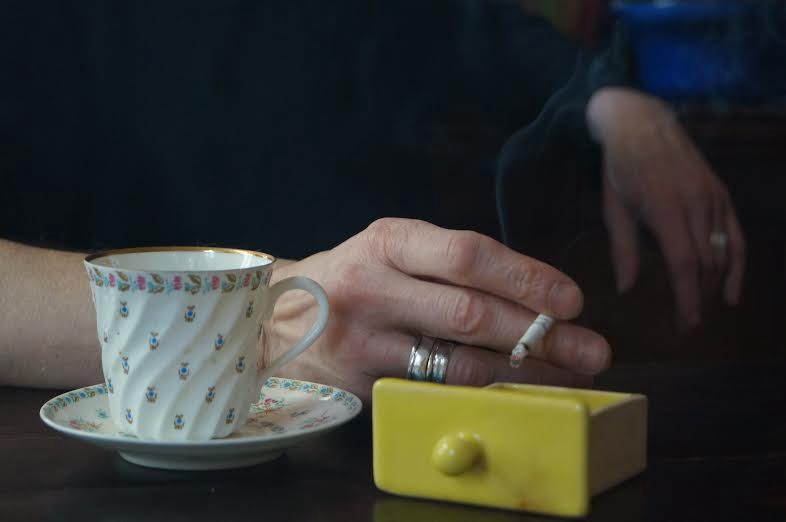
Ukrainian literature — or Ukrainian culture more broadly — employs the words “last” quite often: last territory, last bastion, the last issue of a magazine, the last books of a bankrupt publisher, the last Ukrainian-speaking readers, writers, translators. There is a well-known contemporary classic, a collection of essays by one of Ukraine’s best-known authors, Yuri Andrukhovych, called My Last Territory; there is an art management agency called Last Bastion. Because Ukrainian literature has been aware of being in a sort of intellectual ghetto at least since the 1920s, for a long time there was a program on local radio called “Music from the Ghetto.” Ukrainian literature had kept pace with all the European trends and traditions, arriving at modernism right on time in the early ’20s, but with the advent of Soviet rule in eastern Ukraine, intellectuals began to be shot and then slaughtered en masse, particularly writers, many of whom actually lived on the same street in a kind of cozy little writers’ colony in what was then the capital city, Kharkiv — a city now located just a few dozen kilometers from the Russian border, so that these days its residents wake up every morning and flip on the news to find out if the Russian invasion is underway yet or not.
With Russification, the Ukrainian language was reduced in the popular imagination to a “dialect” of Russian, unable to function on its own in the cultural sphere.
But in the ’20s, while Ukrainian intellectuals in the east were being murdered outright, Ukrainian intellectuals in Galicia — in western Ukraine, belonging to Poland at that time — were suffering from Polish persecution. Bans on the use of the Ukrainian language — both spoken and written — had been in effect for some time in territories annexed by the Russian Empire. In western Ukraine there had been no such prohibitions, but nor did the Ukrainian language ever have a chance to become a language of education and culture, or politics, or business. It was, nonetheless, the mass exterminations of Ukrainians, first and foremost of Ukrainian artists, that dealt the biggest blow to Ukrainian culture, along with forced Russification throughout the twentieth century and continuing into the twenty-first. With Russification, the Ukrainian language was reduced in the popular imagination to a “dialect” of Russian, unable to function on its own in the cultural sphere. An impoverished, ignorant, provincial discourse was artificially cultivated in Ukrainian literature, while more contemporary or cosmopolitan topics were condemned or banned. Even today the same false principles determine the selection of which Ukrainian books are to be read in schools. The field of Ukrainian linguistics was totally destroyed in the Soviet era, Ukrainian dictionaries undermined as words that had no direct equivalent in or obvious etymological similarity to Russian were simply discarded, replaced by blatant calques.
Sadly, this suppression of Ukrainian culture is still ongoing. The Soviet tradition of labeling all things Ukrainian as “nationalistic” is deeply rooted, and even now it is employed by Russian propaganda. Any attempt to protect the rights of the Ukrainian-speaking population is automatically seen as an infringement upon the rights of the dominant, Russian-speaking population. Such efforts, then, are dismissed out of hand. This creates a bizarre situation in which on the one hand Ukrainian men are being mobilized to fight a war against Russia, while on the other Ukraine continues to be dominated by Russian and Russophone culture. Russian and Ukrainian are used seemingly interchangeably on television that is officially Ukrainian; the apparently indiscriminate use of Russian without the provision of translations requires that Ukrainian audiences be at least bilingual.
The first Ukrainian publishing houses came into being right after Ukraine gained independence in 1991, but they mostly published classics of world literature that had been banned in the USSR, and mostly in Russian. Very occasionally they’d do a classic of Ukrainian literature taken from the school curriculum. Contemporary Ukrainian literature was barely published at all during this period. Any volume of new Ukrainian poetry or prose that did get published became a big event — not only because these works were of astonishing quality, but also because of how infrequently even amazing books were getting printed.
Many publishers are going out of business, and those that linger are still unable to permit themselves to publish debut authors…
After the Orange Revolution of 2004 there was a brief thaw, and a fashion for contemporary Ukrainian literature. The publishing industry picked up, and dozens of new names appeared. Aside from the biggest — although let’s face it: the only — Ukrainian book fair in Lviv, other, similar events were established in other cities. But the last few years, unfortunately, have seen a return to the harsh literary realities of the ’90s. Many publishers are going out of business, and those that linger are still unable to permit themselves to publish debut authors, opting instead and exclusively for famous names that can guarantee them sales.
To the above particularities of the Ukrainian book market we should also add the very high rate of piracy. Within a few weeks of its arrival in stores, any even moderately famous Ukrainian author’s book will turn up online, its contents available in their entirety for free. Pirate sites actually claim to support the Ukrainian language, and the vast majority of people who download these books really do believe that they are supporting Ukrainian. The rest do it because they have no other option: bookstores exist only in big cities, and even then, their selection is often considerably more limited than that of pirate sites.
And despite the military operations in eastern Ukraine, it is an essentially Russian cultural product, most often openly anti-Ukrainian, that continues to dominate the Ukrainian cultural market. Thus far, the Ukrainian government has also failed to make any even remotely convincing attempts at defending its own culture, despite the fact that a special Ministry of Information Policy was even created expressly for this purpose.
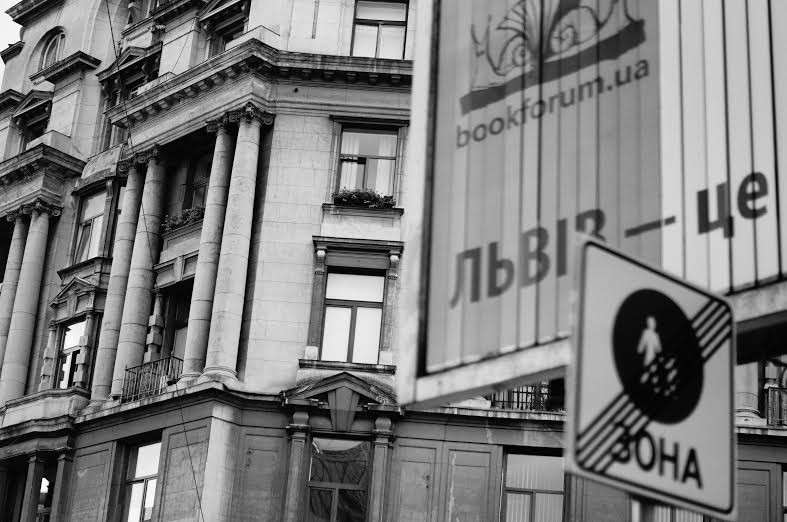
Ukrainian media outlets — and not only the Russophone ones — are mostly Russian-owned, which results in the domination of their content by Ukrainophobic propaganda. The lion’s share of books sold in Ukraine are produced in Russia and imported into Ukraine duty-free, but most of these are also in Russian, especially commercial titles. The exceptions to this system — few, highly intellectual — merely prove the rule. Yet it is this intellectual niche and its intellectual production that earn recognition outside of Ukraine. This typically occurs without the participation of the state, on the initiative of foreign partners. Ukrainian writers are the people foreign commentators turn to first when Ukrainian politics become bewildering, and Ukrainian writers frequently take place in various roundtables abroad as provisional experts on everything, since, as opposed to Ukrainian officials, these writers are educated, speak foreign languages, and are able to articulate their own ideas and paint an informative picture of the state.
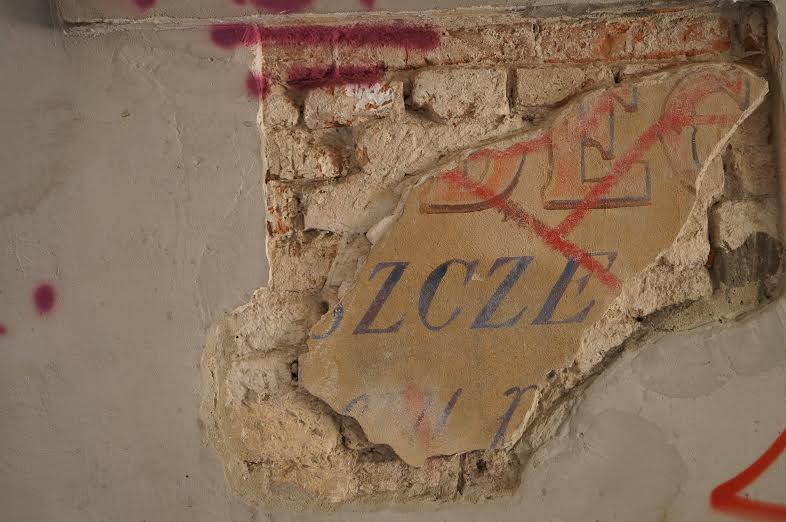
Writers in Ukraine are usually political — often passionately so. When on November 30 of last year the first battles began on Kiev’s Maidan, I heard about it from the Facebook page of a friend, the writer Svitlana Povalyeva. Her post appeared barely thirty minutes after students were first beaten at 4:00 am. Only later did journalists’ and politicians’ posts begin to flood the internet. Svitlana and her husband and their two sons remained on the Maidan for all three of the ensuing months, from the first to the last day. Her son immediately volunteered for the army; he is now fighting in eastern Ukraine. Svitlana’s is not a unique, or even atypical, story.
Writers collect money for the army, for displaced persons, and for the wounded, organizing charitable reading tours in the eastern territories and in the ATO zone, as well as signing up for the army themselves. Whether they volunteer or are drafted, there are a number of writers in the east now writing very good literature inspired by their experiences, which they often publish in fragments over social media. I would love for them to come home and become the Ukrainian Remarques, Dos Passos, Hemingways.
Ukrainian literature is not only divided into Ukrainian-language and Russian-language, pro-west and pro-Russian, but also into official and independent. Official literature is produced by a sizeable state-sponsored Writers’ Union, which has central and regional offices with different facilities, staff, their own media channels — even resorts of their own for their summer vacations. But the literature of its members often exists more hypothetically than it does in actual fact. As a rule, its aesthetics are those of socialist realism — a holdover from Soviet times. These writers periodically receive government awards — officially for books that can’t be found in any bookstore, unofficially for being somebody’s relatives, colleagues, friends. They run the regional Writers’ Unions, get together for conventions, even publish the occasional newspaper — every so often, even a book. These papers and books rarely reach any readers: print runs are miniscule, and the books are essentially intended to serve as gifts for the same government officials who give out the awards.
Independent Ukrainian literature, meanwhile, makes do without any state support — no grants, no official organizations, no conferences, no awards, and no subsidized publications. There are no public or private programs to support independent Ukrainian writers and operating according to fair and transparent criteria; there is no program to represent Ukrainian literature abroad (as there is in most European nations); there is no institution for the protection of copyright. If a Ukrainian author is translated into a foreign language, it is usually the result of a happy coincidence, and of the efforts of self-driven, enthusiastic individual translators.
‘Professional’ writers who live solely off the work they publish in Ukraine simply do not exist.
I am often asked abroad how Ukrainian writers earn a living, given that there are no grants or awards or honorariums for readings or participating in festivals, and that payment for books with print runs in the tens of thousands is a few hundred dollars at best — payment for newspaper columns often comes out to less than fifteen dollars, if they pay at all — and I honestly never really know how to answer this question, except to say that somehow everything always ends up working out. For now, at any rate. Of course there are exceptions, and many people do give up on writing. Many emigrate. “Professional” writers who live solely off the work they publish in Ukraine simply do not exist. The lucky few not forced to earn their living through means other than writing do so thanks to foreign fellowships, residencies, and honorarium.
Really not having any way out seems to have a strange effect on literature. For the most part, it results in the pessimism you might expect. But sometimes unexpected things occur. For example, the remarkably active participation in literary events by the general public. Especially in the Russophone eastern regions of Ukraine — especially, in other words, in places where Ukrainian books are scarce. There is an unexpectedly high level of interest in Ukrainian culture on the front. Books often show up on army requisitions, and in fact writers often finance the acquisition of books for troops themselves.
I recently heard from one of those few publishers still in business that there is a new “trend” in Ukrainian publishing, namely, the translation into Ukrainian of world literature. This same publisher had previously claimed — like most of his colleagues — that translations into Ukrainian would simply never sell. And even more amazingly, publishers have become interested in contemporary — rather than classic — world literature. Most surprising of all is the fact that these translations appear to be immune to piracy. Although perhaps it’s not that surprising after all when you consider the low level of erudition on the part of the pirates.
Ours is a form of proletarian solidarity, but it is powerful and reliable.
The objective absence of a literary market, and with it the absence of any commercial motives, has had a surprisingly positive impact on Ukraine’s literary scene. For the most part, Ukrainian writers not only know each other, but are also genuinely friends, actively promoting and supporting one another. The infrequent conflicts between them are generally over political differences, unlike in other countries where petty jealousy can sometimes run amok. Ours is a form of proletarian solidarity, but it is powerful and reliable.
The number of women in Ukrainian literature is also steadily on the rise, although I’m not exactly sure why this is the case, whether because there are fewer literary prospects (in the Soviet era, being a writer was not only prestigious, but also lucrative, thanks to the state funding provided to those “loyal” to the regime), or because Ukraine is gradually shedding the vestiges of its old patriarchal system. This is happening very gradually, however: the word “feminist,” for example, is only used as an insult, whether it’s applied to men or to women. Successful women, including writers, are usually afraid of being labeled feminists, so they tend to try not to publicize their own successes. Writing remains incompatible with the personal lives of most women. Successful female authors are expected to be young and unwed: women in general have to choose between writing and having a family, as the equitable distribution of domestic responsibilities remains rare among Ukrainian families (not only literary ones).
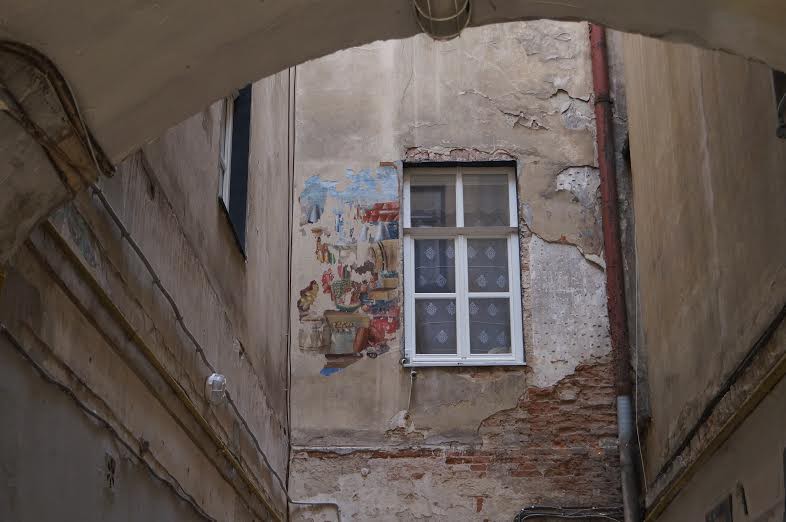
The landscape of Ukrainian literature is changing in unexpected ways. If in the ’90s the critical mass of writers was concentrated in the less Russified western territories of the country, now the majority of writers live in Kiev (though few are from there) or even further east. Ukraine is a country with considerable regional diversity, with a so-called “Kiev school of poetry,” “the Zhytomyr school” after the city in western Ukraine, or the “Stanyslaviv phenomenon,” named for the city of Ivano-Frankivsk, also in western Ukraine, and formerly known as Stanyslaviv. But today when writers (and others) move, it is almost always to Kiev — almost never, that is, from periphery to periphery. Instances of students from Kharkiv, for example, going to school somewhere other than in Kiev (or occasionally Lviv, which is closer to the west) are practically non-existent. Meanwhile, the largest publishers are concentrated in eastern Ukraine, almost at the Russian border — in Kharkiv, in fact, the very city where almost all Ukraine’s most famous writers lived during the 1920s, and the place where they were killed en masse. There is a term in Ukrainian literary criticism for this: “the Executed Renaissance.” The Ukrainians have been waiting for almost a century for a new kind of renaissance, which would encompass literature and more. But until that happens, we seek safety in literature as a kind of last bastion.
About the Author
Natalka Sniadanko has published eight books of fiction and numerous short stories, essays, and poems in newspapers and literary journals. She has appeared in English translation in The New York Times, The New Republic, Two Lines, and The Brooklyn Rail. She has translated Polish writers including Czesław Miłosz and Zbigniew Herbert and German writers including Franz Kafka, Günter Grass, Judith Hermann, and Stefan Zweig. She co-edits the trilingual online magazine RADAR. Her most recent novel, Frau Müller Does Not Wish to Pay More, was nominated for BBC Ukraine’s Book of the Year. In 2011, she was awarded the Joseph Conrad Literary Prize by the Polish Institute in Kiev.
About the Translator
This essay was translated from the Ukrainian by Jennifer Croft, to whom we owe a special thanks for her assistance in assembling The Writing Life Around The World. Croft is the recipient of Fulbright, PEN, and National Endowment for the Arts grants, as well as the Michael Henry Heim Prize, and her translations from Polish, Spanish, and Ukrainian have appeared in The New York Times, n+1, BOMB, Asymptote, Words Without Borders, and elsewhere. She holds a PhD from Northwestern University and an MFA from the University of Iowa. She lives in Buenos Aires and is a Founding Editor of The Buenos Aires Review. Her evolving novel, available in several languages, can be found at www.secretlanguagesoflight.com. Follow her @jenniferlcroft.
You can find all the essays from The Writing Life Around the World at Electric Literature.
